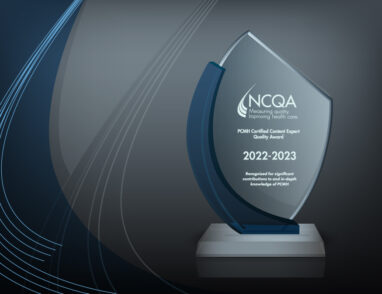Pediatrics Board to Medical Homes: Full Faith and MOC Credit
May 20, 2015 · NCQA
Monday, the American Board of Pediatrics (ABP) announced it would award quality improvement credit in its Maintenance of Certification (MOC) program to physicians recognized as a PCMH by NCQA. The credit will count as 40 points in its Performance in Practice section of MOC requirements.
It is spectacular news for physicians who’ve earned recognition in our Patient-Centered Medical Home (PCMH) program. It simply means doctors face fewer hurdles to achieve the same goals in improving the quality of care. Fewer hurdles equal more time—more time to devote to the first priority, patient care.
APB’s President and CEO David G. Nichols, MD, gives the bottom line in his blog, “Healthier Children is our shared goal. The ABP is committed to making the Maintenance of Certification process simpler and minimizing the barriers to obtaining MOC credit.”
The ABP has made a start, Dr. Nichols adds, by offering new “pathways to earn quality improvement credit for work pediatricians are already doing.”
So, here are the details, and they are pretty simple. Pediatricians who’ve earned PCMH have to attest to meaningful participation in quality improvement activity as part of the NCQA process. “Meaningful Participation” is defined as involving both an active role in the project and participation over time. That means the pediatrician must be engaged in planning and executing the project. He or she must implement the changes designed to improve care, review data to measure results of the change and collaborate regularly with the team working on the quality improvements.
ABP estimates roughly 8,000 doctors will be able to earn credit this way. There are pediatric physicians in about one-third of NCQA’s more than 10,000 recognized PCMH practices.
“Practices put in a tremendous amount of effort to transform and sustain the medical home model of care,” said NCQA Executive Vice President Michael Barr, MD. “By receiving this credit, it helps cut down on the time needed to receive both certification and recognition, and enables practitioners to focus more on taking care of their patients.”
This is a step in the right direction for NCQA as well. As we’ve noted in earlier posts, our PCMH is ready to make some changes of its own. We’re laying the groundwork for a complete redesign of the program and one of the stated goals is to better align with reporting requirements of other organizations and government regulations.
NCQA is in discussions with other certifying organizations who may follow the ABP’s lead. We hope they will. While we want to continue to set the quality standard high, we are aware doctors and other clinicians want more time for treating patients and less time reporting information to NCQA.








